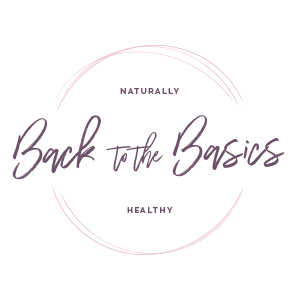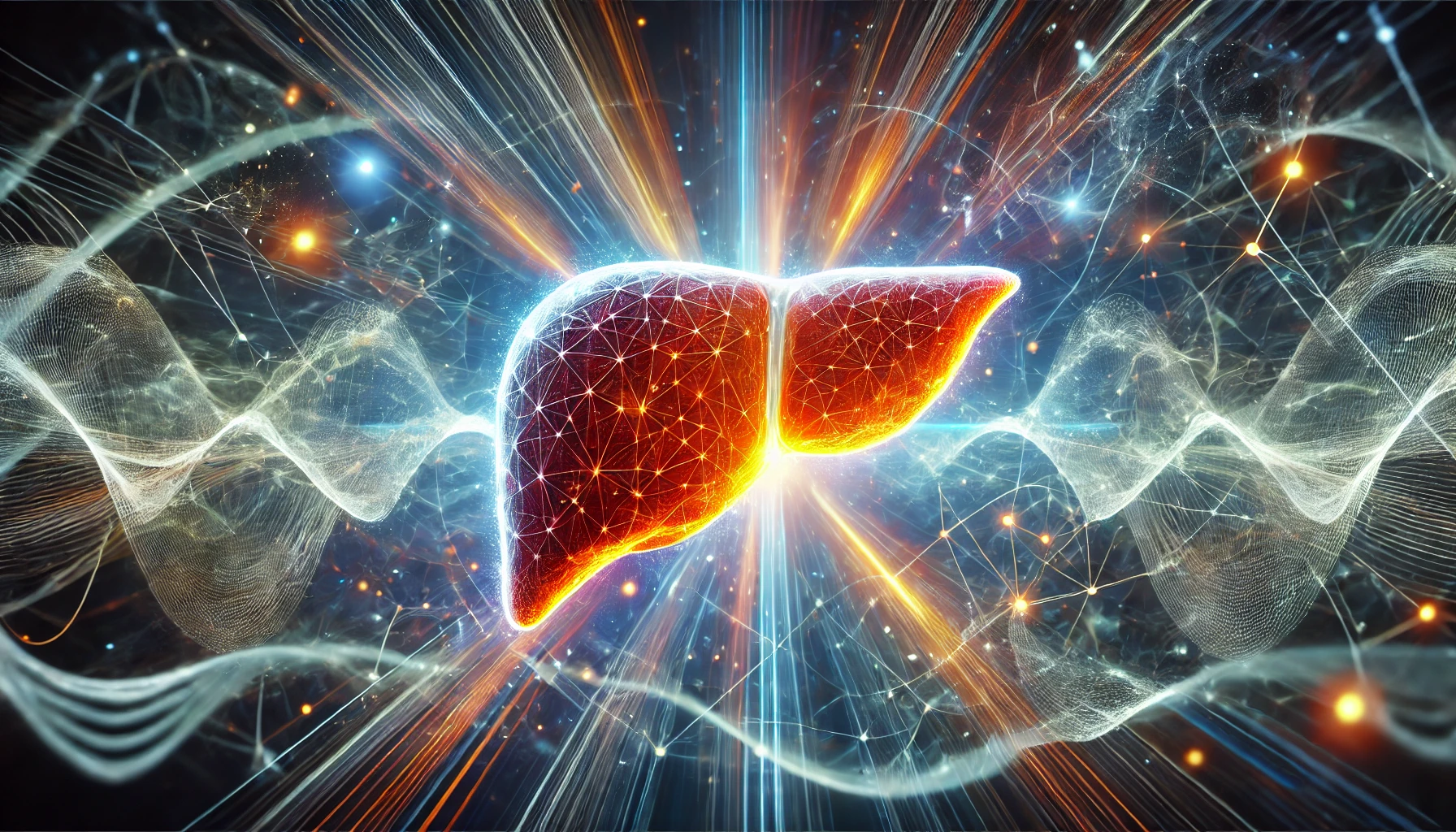The liver – our body’s multi-talent and how we can support it naturally
The liver is one of the most important organs in our body. It performs essential tasks such as detoxification, metabolism and the storage of nutrients. However, we often only pay attention to it when problems arise. In this article, you will find out where the liver is located, what functions it has and how you can support it optimally using natural methods – including the best times of day according to the organ clock to specifically support it. You will also find out which blood values are used to diagnose liver health or diseases and the psychological significance of the liver in relation to emotions such as anger, resentment and rage.
The position of the liver in the body
The liver is the largest internal organ and weighs around 1.5 kilograms. It is located in the right upper abdomen, directly under the diaphragm, and is partially protected by the costal arch. Due to its central location, it is closely connected to other organs and the blood circulation. All nutrients that we take in with food first reach the liver, where they are processed and filtered.
The tasks of the liver – the metabolic center of the body
The liver performs a number of vital functions:
a) Detoxification and reduction of harmful substances
- Filters toxins from food, medicines, alcohol and the environment
- Converts harmful substances and excretes them via the bile or kidneys
b) Production of vital substances
- Bile for fat digestion
- Blood proteins such as albumin and coagulation factors
- Cholesterol as a building block for cell membranes and hormones
c) Storage of nutrients
- Glucose (glycogen) for the blood sugar level
- Vitamins (A, D, E, K and B12)
- Minerals (iron, copper)
d) Hormone metabolism
- Regulates thyroid, stress and sex hormones
e) Support of the immune system
- Contains special immune cells that neutralize pathogens
The psychological significance of the liver – anger, resentment and rage
In traditional Chinese medicine (TCM) and psychosomatic medicine, the liver is associated with the emotions of anger, resentment and rage. An overloaded or weakened liver can therefore not only cause physical complaints, but also promote emotional imbalances.
Anger as an expression of pent-up energy
The liver is energetically responsible for the flow of life energy (Qi). If this energy falters – whether due to stress, suppressed emotions or an unhealthy lifestyle – this can manifest itself in sudden outbursts of anger, irritability or a feeling of frustration.
People with liver problems often tend to:
- Irritability and impatience
- Suppressed anger or uncontrolled outbursts of rage
- Frustration and the feeling of being “stuck”
- Tension in muscles and tendons (e.g. neck tension, headaches)
Anger and the link to liver health
- Chronic stress and anger put a strain on the liver: stress hormones such as cortisol can have a negative impact on the liver’s metabolism.
- Suppressed anger leads to stagnation: Those who suppress their emotions permanently can develop a blockage of liver energy (liver qi stagnation), which manifests itself in digestive problems, headaches or feelings of pressure in the upper abdomen.
- Healthy anger as an expression of self-determination: Anger is not negative per se – it helps us to set boundaries and stand up for ourselves. However, if it is not expressed in a healthy way, it can be directed against our own body.
How can you relieve them energetically and emotionally?
- Emotional release: Methods such as journaling, conscious communication and expressing feelings can help to let go of suppressed anger.
- Breathing exercises and meditation: Calm the nervous system and help to reduce inner tension.
- Physical exercise: Sports such as yoga or Qi Gong can help to get “pent-up” energy moving.
- Liver-friendly nutrition: Supports physical and emotional balance.
Important liver values in the blood – How do you recognize impaired liver function?
Various blood values are analyzed to check the health of the liver. Here are the most important laboratory parameters:
1. liver enzymes – markers for cell damage or inflammation
- GPT (ALT, alanine aminotransferase): A specific liver value. Elevated values indicate liver damage.
- GOT (AST, aspartate aminotransferase): Also a liver enzyme, but can also be elevated in cases of heart or muscle damage.
- Gamma-GT (GGT, gamma-glutamyltransferase): Particularly sensitive to liver damage caused by alcohol or medication.
- GLDH (glutamate dehydrogenase): A very specific marker for severe liver damage, especially if the liver cells are more deeply damaged, e.g. in the case of toxic liver damage or liver inflammation.
2. cholestasis values – indication of bile congestion or bile problems
- Alkaline phosphatase (AP): Elevated in cases of bile congestion or bone disease.
- Bilirubin: main breakdown product of the red blood pigment (haemoglobin). Elevated values can indicate jaundice, bile problems or liver disease.
3. synthesis performance of the liver – how well does it still work?
- Albumin: A protein produced by the liver. Low values indicate reduced liver function.
- Quick value (INR, clotting time): As the liver produces clotting factors, a prolonged clotting time may indicate liver damage.
4. further values for the assessment of liver health
- Ammonia: Increased in severe liver damage (e.g. liver cirrhosis or liver failure).
- Urea & creatinine: Indirectly relevant, as the liver is also involved in protein utilization.
A regular check of these values can help to detect liver problems at an early stage and act accordingly.
Naturopathic support
a) Nutrition – liver-friendly foods
- Bitter substances: artichokes, chicory, dandelion stimulate the bile
- Cruciferous vegetables: broccoli, Brussels sprouts support detoxification
- Turmeric: Has an anti-inflammatory effect
- Garlic & onions: promote liver metabolism
- Beet: Supports detoxification
- Lemon water: stimulates liver function
b) Medicinal plants for liver regeneration
- Milk thistle: Protects and regenerates liver cells
- Dandelion root: promotes bile production
- Yarrow: Has an anti-inflammatory effect
c) Liver compresses for relief
Place a warm cloth with a hot water bottle on the right upper abdomen – this promotes blood circulation in the liver and supports detoxification.
d) Fasting and detox cures
Intermittent fasting or a detox cure with lots of vegetables, herbal teas and water helps the liver to regenerate.
e) Exercise and stress reduction
Exercise improves blood flow to the liver and reduces stress hormones that put a strain on it.
f) Zeolite and bentonite – natural detoxification aids for the liver
Zeolite and bentonite are two natural mineral substances that are often used in naturopathy for detoxification. Both have an extraordinary ability to bind toxins, heavy metals and other harmful substances and remove them from the body. This reduces the burden on the liver, as it has to break down fewer harmful substances.
What is zeolite?
Zeolite is a volcanic mineral with a highly porous structure that acts like a sponge. It consists mainly of silicon and aluminum compounds and has a negative charge, which attracts and binds positively charged pollutants.
Effect of zeolite on the liver:
- Binding of toxins: Zeolite can bind heavy metals, environmental toxins, ammonia and other toxic substances in the intestine before they burden the liver.
- Acid-base balance: It helps to regulate the pH value in the body, which supports liver functions.
- Supporting intestinal health: As the intestines and liver work closely together, a healthy intestine also has a positive effect on the liver.
What is bentonite?
Bentonite is a clay mineral that is rich in montmorillonite. It also has a high absorption capacity and binds harmful substances in a similar way to zeolite. Bentonite forms a gel-like consistency in the intestine, which envelops toxins and removes them safely.
Effect of bentonite on the liver:
- Supports detoxification: It helps to bind harmful substances in the digestive tract and prevents them from entering the bloodstream and burdening the liver.
- Protection of the intestinal mucosa: A healthy gut reduces the amount of toxins that the liver has to process.
- Regulation of the microbiome: Bentonite promotes healthy intestinal flora, which indirectly improves liver health.
How are zeolite and bentonite used?
- Ingestion: Both mineral earths are available in powder or capsule form.
- Dosage: It is usually recommended to drink 1 teaspoon of zeolite or bentonite dissolved in a glass of water, ideally in the morning on an empty stomach or in the evening before going to bed.
- Important: Drink plenty of water, as both substances bind liquid and can otherwise lead to constipation.
- Combination with other liver cures: Zeolite and bentonite can be combined well with liver compresses, bitter substances and milk thistle.
Use with caution:
- Do not combine with medication: As zeolite and bentonite can also bind medications, there should be an interval of at least 2 hours between taking them.
- Do not take permanently: A course of 8-12 weeks is ideal. After that you should take a break.
The liver and the organ clock – when does it work most effectively?
In traditional Chinese medicine (TCM), there is the concept of the organ clock, which states that each organ has its maximum activity at a certain time of day or night. The liver reaches its peak performance between 1:00 and 3:00 am. During this time, the detoxification process runs at full speed, toxins are broken down and metabolic products are processed.
Certain measures can be taken to optimally support the liver:
1:00 – 3:00: The peak phase of the liver
- Rest and sleep are essential: as the liver regenerates at night, sufficient sleep is particularly important. Anyone who is regularly awake or sleeps poorly during this time can put a lot of strain on the liver.
- Avoid heavy meals in the evening: fatty or hard-to-digest foods should not be eaten too late, as they make the liver’s work more difficult.
- Herbal teas for support: Bitter substances in the form of herbal teas (e.g. dandelion, yarrow or milk thistle) can be drunk in the evening to promote liver function during the night.
- Warm water or lemon water before going to bed: A glass of lukewarm water or lemon water helps the liver to process harmful substances better.
13:00 – 15:00: The resting phase of the liver
- During this time, the liver reduces its activity, while the small intestine is active. If you get tired after lunch, you should not push yourself with coffee, but take a short break or a short walk.
- Prefer light meals: As the liver is less active during this phase, heavy, fatty meals are not ideal at this time.
Additional tips to support the liver according to the organ clock:
- Come to rest between 21:00 – 23:00: According to the organ clock, this time is assigned to the triple warmer (a concept from TCM that describes the entire metabolic system). Relaxation in the evening – through meditation, gentle stretching or a liver wrap – can help the liver to prepare for its nightly detoxification work.
- Avoid eating late: If digestion is still active during the liver’s peak phase (1:00 – 3:00 am), this can hinder the liver’s work. Ideally, therefore, the last large meal should be eaten no later than 19:00.
- Avoid alcohol and stimulants in the evening: As the liver is very busy detoxifying at night, it should not be additionally burdened by alcohol or other stimulants.
Conclusion
The liver is not only a physical, but also an emotional center of our body. It is closely connected to our feelings, especially anger and resentment. A conscious diet, natural remedies and the right way to deal with emotions can relieve it and strengthen its function.
If it is healthy, this not only means physical well-being, but also inner balance, clarity and serenity – a good reason to pay more attention to it!


Leave A Comment